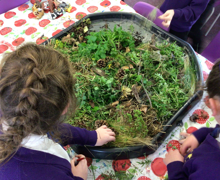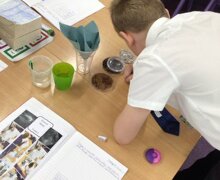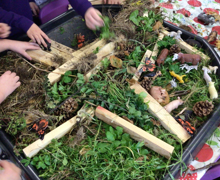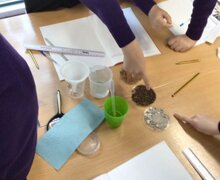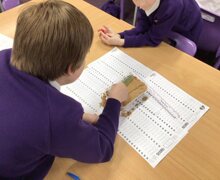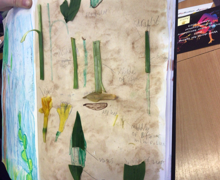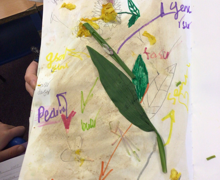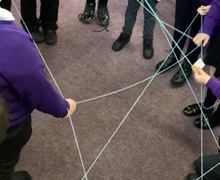News
24/03/2023Science Week 2023
White Cliffs has celebrated Science Week this week. The week started with an assembly where we investigated the most important question of all – “Which biscuit is the best for dunking?” Well done to all of the children that contributed towards this by conducting the experiment and collecting data. It turns out Oat biscuits are the best as they lasted a huge 40 dunks before breaking!
Our children have focussed on different jobs that require the use of scientific skills this week and really put their feet in the shoes of famous scientists!
In Pebbles, the children have looked at the life cycles of both plants and animals and have observed how tadpoles change into frogs. They have also planted their own sunflowers and will observe the changes in the weeks to come.
In Reception, the children have explored the world around them by looking at how certain objects float and others sink. They have also explored the solar system and created their physical planet models and explored craters on the moon!
In Key Stage 1, the children have taken on the important role of farmers and have identified the best conditions for spring onions to grow. They have also created floating gardens like those seen in Bangladesh to support with growing vegetables during monsoons.
In Year 3, the children have taken on the role of botanists and dissected and observed a variety of plants such as daffodils. They have even built a penetrometer that measures soil compaction! They created beautiful journal pages to record their findings.
In Year 4, the children took on the role of ecologists following their trip to Wildwood last week. Here, they observed different food chains and ecosystems within our local area. This week, they have taken that a step further by developing their own ecosystems and even sent letters to a local farmer to tell him the impact that knocking down a barn could have on the rest of the ecosystem!
In Year 5, the children have continued their learning on space by becoming astronomers. They have investigated how craters are formed and measured the depth of different examples. They also tested a variety of soil samples to find out which one was martian soil!
In Year 6, the children have continued to study blood and the rest of the body. They created a giant body map in the hall and each took on the role of different parts of the blood. They also took on the challenge of ‘beating a heart’ by seeing if they can pump water as quickly as the heart can pump blood!

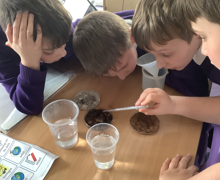
![Image[1]](https://whitecliffs.s3.amazonaws.com/uploads/asset_image/2_635_g.png?t=1745504942)
![Image[2]](https://whitecliffs.s3.amazonaws.com/uploads/asset_image/2_636_g.png?t=1745504942)
![Image[3]](https://whitecliffs.s3.amazonaws.com/uploads/asset_image/2_637_g.png?t=1745504942)
![Image[4]](https://whitecliffs.s3.amazonaws.com/uploads/asset_image/2_638_g.png?t=1745504942)
